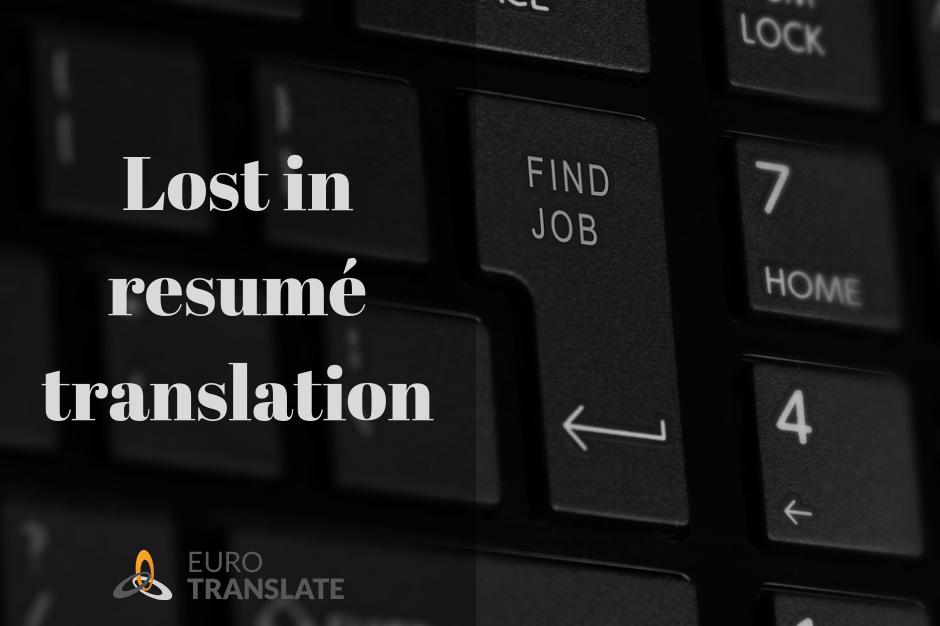Whether you are applying for work abroad or just in a foreign company within your own country, you will need to translate your resumé and pay special attention to conveying the value of your experience, knowledge and skills in the truest form possible. This can often be challenging, because we only become aware of the road blocks once we stumble upon them.
There are several “pain points” in resumé translations – or better yet: resumé localizations – but let’s start from the top of the page and slowly make our way down:
- Make sure your address and phone number format are adapted to the standard of the target language – this could make a big difference, such as: being contacted or not by the employer (who is missing the country code in the phone number, for example).
- Did you check the date, too, while you’re there? Dates can be written (and read!) in different order and formats in different countries.
- Go through the whole text: are there any acronyms that might be tricky to understand or translate or find the relevant parallel in the target language? We often take these things for granted, but there are many abbreviations and acronyms used within certain industries, even companies or universities, that do not translate easily into other industries, let alone other languages.
- This also applies to job titles: for example, employees working for IBM often find that their titles stand for something completely different to others in the industry (universe?). Does your job title translate correctly to other markets? Does it mean the same? The most banal of all examples: “mother tongue teacher” – if left like that, would convey the opposite meaning to the reader of a differing ‘mother tongue’.
- Talking about work experience listed within your resumé, perhaps it would be wise to think about “beefing up” your job descriptions. Are they recounting your abilities and duties properly? Would the possible employer just glance over them, overcome with boredom, or would something in there catch their eye? Concentrate on trying to explain what makes you YOU, how are you different or better from other people doing the same job. By nature, company job descriptions are designed to make everyone with a given job title look the same. Dare to stand out. Make it evident in you resumé.
- Next, let’s tackle your achievements and contributions: sometimes it is not easy to transfer their meaning and relay the situation to another market. At times only parallel or similar situation will do, if you want to (and probably have to) avoid lengthy explanations and cultural interpretations.
- The language you choose to use throughout all this is crucial. You want to leave the impression of someone who has a certain language competence and communication skills, and this impression could be heavily tainted by wrong choice of words or wrong “localized” idiom.
In the end, what is the image the person who has perused your resumé is left with? Would they think one minute of their time dedicated to this was worth it? Try to make sure it is.
In order to achieve the professional looking and sounding resume, the one that impresses the potential employers – why don’t you consider leaving it in the hands of professionals? Call your nearest translation agency. They might help you actually get the job you want.

